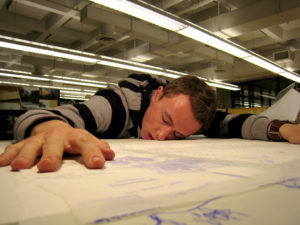Effective and Efficient Ways to Naturally Boost Testosterone Levels

Every man dreads the day they will lose their hair and the physique they’ve been working on for years due to a testosterone problem which has affected those in their 20’s and 30’s
The problem of low testosterone is no longer an old wives tales as its effects can be felt and seen.
It is by no means an unstoppable force and we are simply at the mercy of its beck and call.
It can be something you can reverse, prevent, and delay and we will show you how.
What You Need to Know about Testosterone?
Testosterone is a steroid hormone that is produced in the gonads,
It is an organ which is present in both male and females.
The gonads are called the testes for males and ovaries for females respectively.
Testosterone is also responsible for the secondary sexual characteristics for both genders but is more noticeable in males.
Production peaks in the teenage years and lessens as a person ages,
The lessening amount greatly affects not only sexual drive, but also muscle tone definition and hair loss to name a few.
The period of a man’s life which he experiences these changes has been aptly named as andropause (also known as male menopause).
Although it is natural for the body to make less and less of it as we grow older.
Some people actually experience andropause earlier in their lives which is largely due in part to several factors.
These factors include but is not limited to:
- Heredity and Genetics
- Damage to the Gonads
- Poor Nutrition
- Stress
- Drugs and Substance Abuse
- Lifestyle Choices
While the above factors may contribute to incidence of critically low testosterone levels, it is by no way reversible.
Majority of the causes for having low testosterone levels are preventable or at the very least manageable.
Although, there is no escaping problems associated with heredity and genetics as well as damaged or absent gonads.
They are however manageable, though the latter requires more immediate solutions such as hormone replacement therapy to alleviate the condition known as hypogonadism.
Managing Exhaustion and Overexertion

One of the major contributing factor to lower testosterone is the presence of large amounts of cortisol in the system.
It is a steroid hormone which gets released in the blood during times of stress.
Its role is primarily to help combat stress by shutting down unnecessary body functions like reproduction and the immune system to name a few.
Cortisol in large amounts within the system is linked to the loss of muscle mass and the increased accumulation of belly fat.
Although, having very little of the hormone also causes the feeling of being chronically fatigued specially since it is still needed by the body to function normally.
Effective and efficient ways to deal with this problem is by managing your exhaustion and avoiding becoming too overworked.
These includes getting adequate sleep, avoid working out too much, engaging in high level contact sports, and becoming too fatigued.
Sleep is your Best-friend
Thomas Alva Edison was once quoted as saying, “Personally, I enjoy working about 18 hours a day. Besides the short catnaps I take each day, I average about four to five hours of sleep per night…”,
It doesn’t mean that this great inventor was right on his concept of sleep.
This is most certainly true with hormone production as the pituitary gland is most active during sleep.
This tiny organ which sits at the base of the brain is responsible for regulating all hormone processes in the body.
This includes both testosterone and cortisol as well as a few others.
Our body normally follows an internal clock called the “circadian rhythm”.
The circadian rhythm tells our body when to go to bed and when to wake up.
It is a process that science has barely grasped but has been observed.
Experts also suggests taking advantage of the window between 10 p.m to 2 a.m.,
Since sleeping at these times has been known to increase testosterone levels.
As they strongly believed this is the time where the pituitary gland is the most active.
Exert Effort but don’t Overexert
While it is good to exercise and stay fit what is not good however is overexerting yourself to exhaustion.
It is a common misconception that there is no such thing as overexercising.
In truth, it does exists.
It is also one reason why men in their 20’s and 30’s are experiencing periods of low testosterone.
It is advisable to exercise caution and manage your workout appropriately.
Studies have shown that people oftentimes don’t easily feel tired after a workout as they would do when working on a job.
This is strongly linked to another hormone called adrenaline also colloquially known as epinephrine.
It happens during an extensive workout session but is also responsible for the fight or flight response.
The adrenal glands produces this hormone to prepare the body of a possible stressful situation.
Its effects can last for a few minutes to a few hours an is called an “adrenaline rush”.
During this period a person doesn’t feel tired easily alternatively they also become more responsive.
Even in some rare but recorded cases it can cause people to do superhuman feats like carrying heavy objects unassisted.
In a workout the effect can actually make you feel less tired and most likely cause you to overexert.
Increased cortisol levels due to overexertion causes testosterone levels to lower.
Cortisol along with adrenaline if not managed properly can actually lead to seriously critical levels of low testosterone.
As having more of both hormones limits the normal function of the body so that it can fight stress.
Reducing Stress Levels
 In the previous topic we talked about how cortisol is affected by stress which is one of the causes of low testosterone in men.
In the previous topic we talked about how cortisol is affected by stress which is one of the causes of low testosterone in men.
Managing stress levels is crucial in maintaining optimum hormone balance as well as normal body function.
The first thing you need to do is understanding the cause of your stress.
This can be from a myriad of reasons such as being sick, becoming overworked, emotional burden, and social pressures to name a few.
Stress is by no means unmanageable or unpreventable.
It is more of a result based on choices and less on chance.
How you deal with a problem which causes you stress and how you avoid such problems in the future are major points to consider.
The more you understand the more better you will be in dealing with it.
Reacting to stressful situations and responding appropriately is the key to promoting healthy stress management practices.
Tips:
Stress can manifest as physical and emotional, both of which are manageable.
- Physical stress is caused by sickness, illness, disease, and physical trauma such as a sprain or bruise
- Emotional stress is more on outlook and can be hard to manage without proper help from others or professionals.
Stress Management is possible in various ways such as:
- Engaging in activities which causes a healthy form of distraction.
- Avoid overthinking, instead adopt a calm and collected manner of doing things.
- Try to dodge situations which will cause you stress.
- Actively participate in therapy sessions but choose the one which you are most comfortable with.
Exercise and Weight Loss
 Nothing like a good jog to improve circulation, metabolism, and also increase testosterone levels.
Nothing like a good jog to improve circulation, metabolism, and also increase testosterone levels.
Exercise has been shown to effectively increase testosterone by causing the body to metabolize cholesterol faster.
Cholesterol while originally considered by the media as the enemy of health and wellness for years.
It is actually a necessary component for the creation of steroid hormones which includes testosterone, progesterone, and cortisol to name a few.
What science actually found out recently is that there are actually two types of cholesterol and these are:
- High Density Lipoprotein (HDL) known as the good cholesterol found mostly in plant products and Omega-3 food sources.
- Low Density Lipoprotein (LDL) known as the bad cholesterol and commonly found in animal products.
What HDL does to the body is that it acts somewhat like a sponge and absorbs the bad cholesterol.
The liver then process the HDL for use by the body in creating steroid hormones or excreted through the digestive system.
The process becomes more active and faster when exercising as the levels of HDL also increases during workouts and metabolism.
Aside from the reduction of cholesterol levels, exercise can actually cause weight loss.
While exercise alone cannot help weight loss it can be encouraged with proper nutrition and a healthy lifestyle.
Tips:
- Take note of extreme and prolonged cardio exercises which are known to increase cortisol levels in the blood.
- Avoiding overexertion and exhaustion when exercising should be a priority.
- Eating foods rich in HDL before and after a workout can help lower LDL and increase testosterone levels.
- Exercising in short bursts and a proper diet can help weight loss while too much exercise has very little to no effect.
Proper Nutrition
 In the previous topic we’ve discussed a little about nutrition particularly in the intake of cholesterol.
In the previous topic we’ve discussed a little about nutrition particularly in the intake of cholesterol.
In this one we will talk more on the micro-nutrient called zinc and how a low sugar diet can help increase your testosterone.
What is Zinc?
The first thing that comes to our mind when talking about zinc is the immune system.
Zinc while in fact is useful in a healthy immune system, it is also the mineral largely responsible for the creation of certain enzymes.
Enzymes are a special type of protein which helps facilitate the creation of antibodies and even hormones.
Unlike other hormones which are created by special cells of organs.
Steroid hormones such as testosterone heavily rely on the enzymatic process which is where zinc comes in.
Zinc helps speed up the process involved in converting free cholesterol by becoming a catalyst in enzymes.
The enzymes works by restructuring the cholesterol with the help of the mineral into testosterone.
So, having a diet rich in zinc such as seafood particularly shellfish, red meat and poultry, wholegrain cereals, and dairy products.
Having an adequate supply of zinc in the body is beneficial to maintaining a good testosterone level.
Although we recommend taking in zinc since our bodies do not have the means to store it.
It is still a micro-nutrient and thus should be taken sparingly as zinc poisoning or zinc overdose is possible.
Benefits of a Low-Sugar Diet
Sugar is no longer the dread of any child who wants to avoid the dentist.
It is also becoming a growing concern everywhere from people suffering diabetes to those who have cancer.
While sugar is a necessary source of energy of the body.
There are actually different types of sugar but they can be broken into two groups.
- Simple Sugars: Instantly increases blood sugar levels and easily absorbed.
- Complex Sugars: takes time to increase blood sugar levels and is harder to metabolized and absorbed.
The simple sugars are the ones people usually avoid as it can increase blood sugar levels faster..
Complex sugars on the other hand gradually release blood sugar over time but can still pose a risk if not carefully managed.
Anything is moderation is always a good choice when dealing with sugars.
One question still remains, how does sugar lower testosterone?
There is no explanation available however studies like this have shown a direct correlation between blood sugar levels and low testosterone.
Although the study is just one of the many ones available out there.
It is still true that high blood sugar levels leads to low testosterone production.
A fact which is present in diabetics.
Although sugars or carbohydrates are useful in providing our body the energy it needs to function.
Moderation is the key to balance blood sugar levels.
Which can drastically affect testosterone levels.
Advocating Healthy Lifestyle Choices
 In the first part of this article one of the things we have which causes low testosterone enumerated are lifestyle related.
In the first part of this article one of the things we have which causes low testosterone enumerated are lifestyle related.
These included drugs and substance abuse as well as poor lifestyle choices.
While it cannot be denied that taking in drugs whether prescribed, over the counter medications, or illegal ones such as narcotics can be bad for the body.
Commonly abused substances such as caffeine, alcohol, and nicotine can also cause low testosterone in men.
Aside from adding stress to the body by introducing synthetic or foreign substances for it to process and dispose of.
They also come with their own side-effects which can directly or indirectly affect the production of testosterone.
Another thing you also need to take note is that by advocating a stress-free lifestyle, healthy diet, exercise, proper weight control, and knowing the importance of sleep as well as avoiding overexertion.
You can be able to bounce back from having low testosterone.
Hormone Replacement Therapy (HRT)
If you decide to get Hormone Replacement Therapy (HRT), it is usually a last resort if all else fails.
You should always speak with your physician and take necessary tests before resorting to the treatment so that you can avoid complications.
Tips:
- It is always advisable to get a full physical so that you would be able to know if your low testosterone may be caused by an illness or abnormality.
- Always ask your doctor for alternatives and try to get a second opinion before proceeding with HRT.
- HRT is not a cure-all to having low testosterone as you still need to monitor your testosterone level and practice a healthy lifestyle.
Additional Reading:
In the Know
Nutrition
- Zinc Excess, Deficiency, and Supplementation
- Simple Sugars vs. Complex Carbs
- Good vs. Bad Cholesterol
Publications
- Implications for Screening for Hypogonadism
- Correlation with Psychological Overtraining Items
- The Endocrine Effects of Nicotine and Cigarette Smoke
